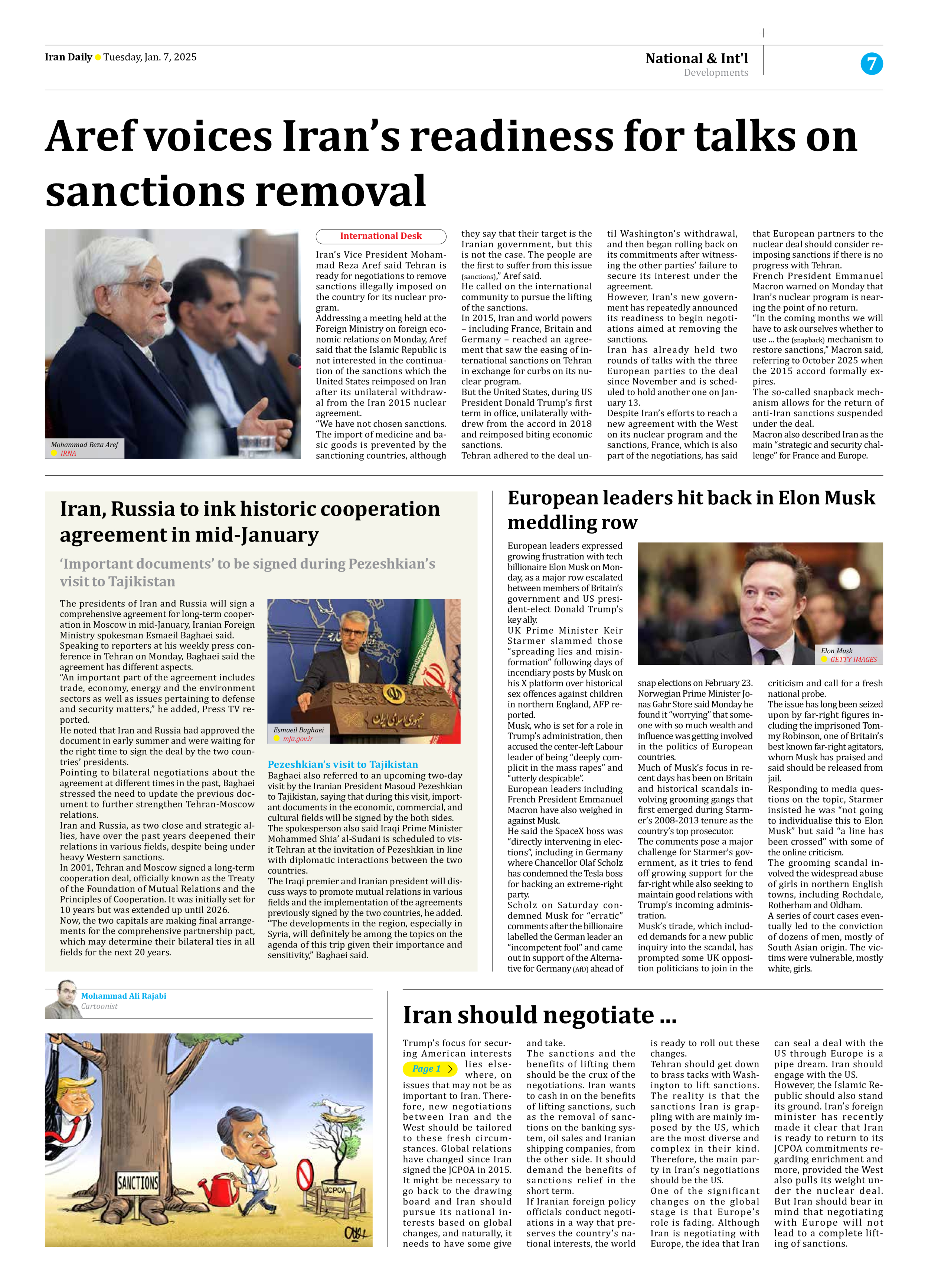
Aref voices Iran’s readiness for talks on sanctions removal
Iran’s Vice President Mohammad Reza Aref said Tehran is ready for negotiations to remove sanctions illegally imposed on the country for its nuclear program.
Addressing a meeting held at the Foreign Ministry on foreign economic relations on Monday, Aref said that the Islamic Republic is not interested in the continuation of the sanctions which the United States reimposed on Iran after its unilateral withdrawal from the Iran 2015 nuclear agreement.
“We have not chosen sanctions. The import of medicine and basic goods is prevented by the sanctioning countries, although they say that their target is the Iranian government, but this is not the case. The people are the first to suffer from this issue (sanctions),” Aref said.
He called on the international community to pursue the lifting of the sanctions.
In 2015, Iran and world powers – including France, Britain and Germany – reached an agreement that saw the easing of international sanctions on Tehran in exchange for curbs on its nuclear program.
But the United States, during US President Donald Trump’s first term in office, unilaterally withdrew from the accord in 2018 and reimposed biting economic sanctions.
Tehran adhered to the deal until Washington’s withdrawal, and then began rolling back on its commitments after witnessing the other parties’ failure to secure its interest under the agreement.
However, Iran’s new government has repeatedly announced its readiness to begin negotiations aimed at removing the sanctions.
Iran has already held two rounds of talks with the three European parties to the deal since November and is scheduled to hold another one on January 13.
Despite Iran’s efforts to reach a new agreement with the West on its nuclear program and the sanctions, France, which is also part of the negotiations, has said that European partners to the nuclear deal should consider reimposing sanctions if there is no progress with Tehran.
French President Emmanuel Macron warned on Monday that Iran’s nuclear program is nearing the point of no return.
“In the coming months we will have to ask ourselves whether to use ... the (snapback) mechanism to restore sanctions,” Macron said, referring to October 2025 when the 2015 accord formally expires.
The so-called snapback mechanism allows for the return of anti-Iran sanctions suspended under the deal.
Macron also described Iran as the main “strategic and security challenge” for France and Europe.







